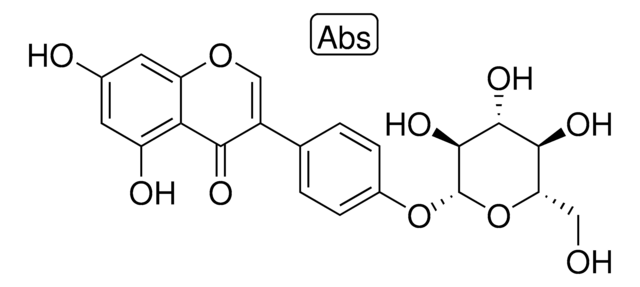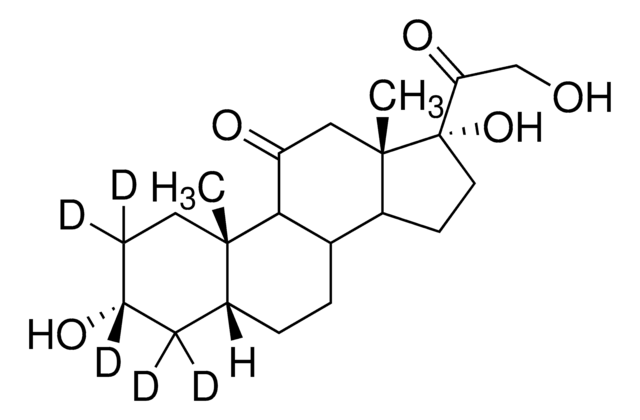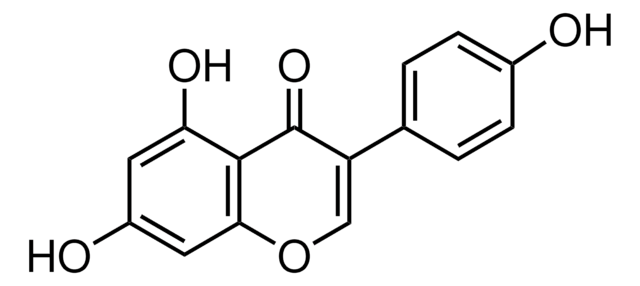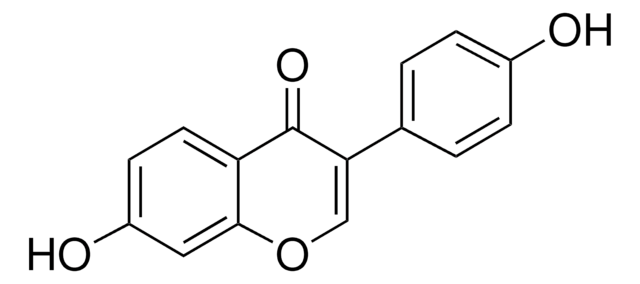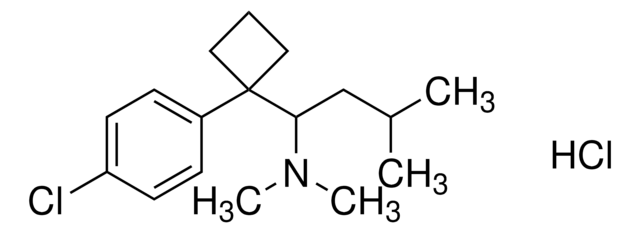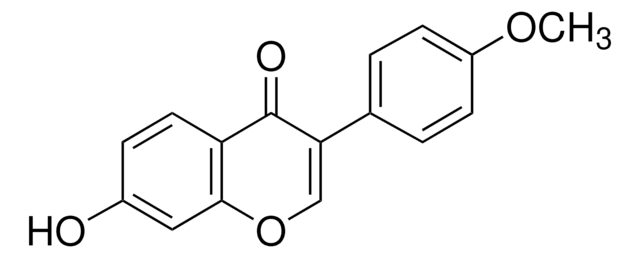SMB01343
Tetrahydrocortisol
≥95% (HPLC)
Sinónimos:
5β-Tetrahydrocortisol, THF, Tetrahydro F, Tetrahydrocompound F, Tetrahydrohydrocortisone, Urocortisol
About This Item
Productos recomendados
Nivel de calidad
Ensayo
≥95% (HPLC)
Formulario
solid
temp. de almacenamiento
2-8°C
cadena SMILES
O=C(CO)[C@@]1(O)CC[C@@]2([H])[C@]3([H])CC[C@]4([H])C[C@H](O)CC[C@]4(C)[C@@]3([H])[C@@H](O)C[C@@]21C
InChI
1S/C21H34O5/c1-19-7-5-13(23)9-12(19)3-4-14-15-6-8-21(26,17(25)11-22)20(15,2)10-16(24)18(14)19/h12-16,18,22-24,26H,3-11H2,1-2H3/t12-,13-,14+,15+,16+,18-,19+,20+,21+/m1/s1
Clave InChI
AODPIQQILQLWGS-GXBDJPPSSA-N
Descripción general
Aplicación
Características y beneficios
- Can be used in Metabolomics and Biochemical research
- High-quality compound suitable for multiple research applications
Otras notas
Código de clase de almacenamiento
11 - Combustible Solids
Clase de riesgo para el agua (WGK)
WGK 3
Punto de inflamabilidad (°F)
Not applicable
Punto de inflamabilidad (°C)
Not applicable
Elija entre una de las versiones más recientes:
Certificados de análisis (COA)
Lo sentimos, en este momento no disponemos de COAs para este producto en línea.
Si necesita más asistencia, póngase en contacto con Atención al cliente
¿Ya tiene este producto?
Encuentre la documentación para los productos que ha comprado recientemente en la Biblioteca de documentos.
Nuestro equipo de científicos tiene experiencia en todas las áreas de investigación: Ciencias de la vida, Ciencia de los materiales, Síntesis química, Cromatografía, Analítica y muchas otras.
Póngase en contacto con el Servicio técnico